ASTANA – Kazakhstan Global Investment Roundtable (KGIR) showcased the emerging trends in the investment landscape on Nov. 1, culminating in a landmark $7 billion in signed agreements. The high-profile event brought together international investors, government officials, and industry leaders, all eager to explore new opportunities in Kazakhstan’s evolving investment landscape.
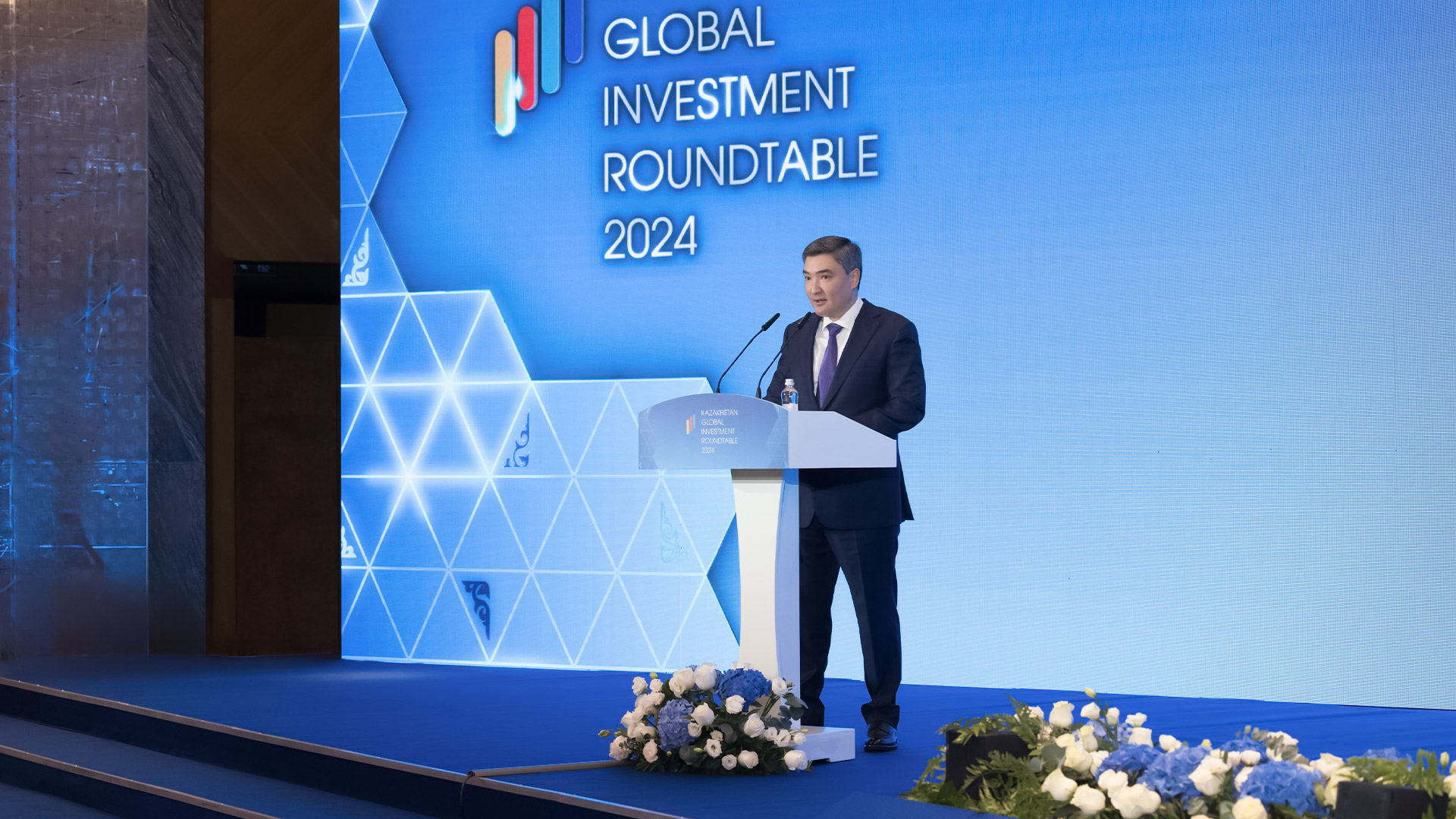
Olzhas Bektenov. Photo credit: primeminister.kz
“We are in a time of unprecedented challenges and opportunities. Kazakhstan has adapted well to recent changes and continues to grow steadily,” said Prime Minister Olzhas Bektenov, addressing the plenary session. The nation’s GDP grew by 4% during the first nine months of 2024, driven by the development of the non-commodities sector.
He noted the government recently adopted the updated national investment policy until 2029.
Speaking of how the government supports investors, Bektenov outlined 14 special economic zones, incentives for strategic investors, and legal protection, among others. He also highlighted incentives for which strategic investors are eligible in Kazakhstan, including customised support through investment agreements that ensure the stability of legislation for 25 years, with a particular focus on tax and labor legislation.
“Developing local industries remains a key priority for us. Domestic companies benefit by working within the supply chains of major investors, gaining experience, and improving quality standards. Large investment projects have a multiplier effect on the growth of small and medium businesses. Our aim is to ensure that as foreign production in Kazakhstan grows, so does the share of local content in the products,” said Bektenov.
To promote further localization, Bektenov said the government plans to raise the share of the off-take contracts in purchases up to 10% and encourage foreign investors to hire local specialists at all levels.
“The government continues to ensure the protection of both domestic and foreign investors’ rights and interests. Kazakhstan has taken a unique approach by moving away from a monopolized jurisdiction and allowing investors to choose between English law through the Astana International Financial Centre and the national legal system,” said Bektenov.
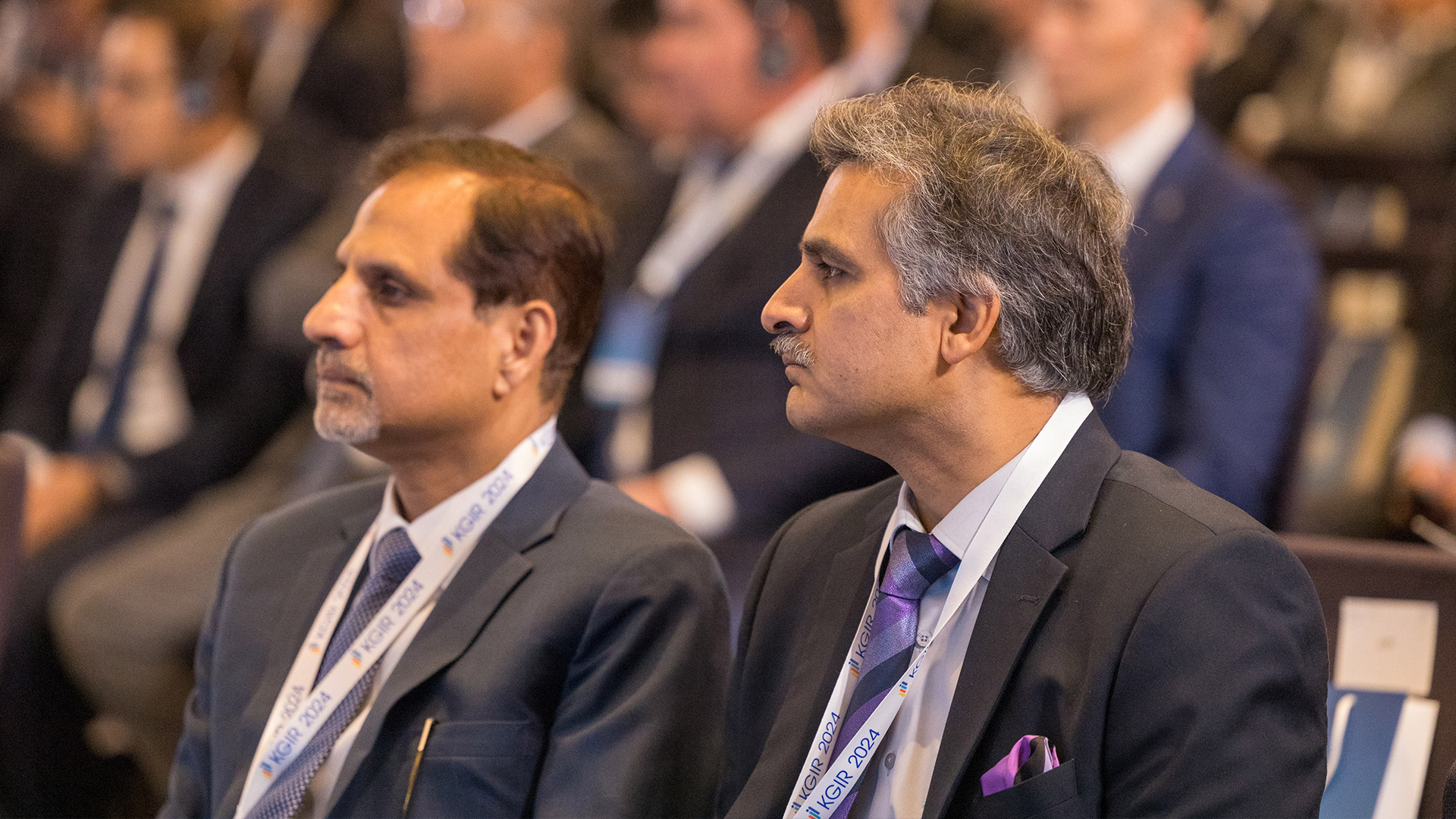
The forum gathered more than 500 delegates. Photo credit: primeminister.kz
He reiterated the government’s commitment to “open and transparent communication.”
“The government of Kazakhstan values direct engagement with investors at every stage of the project, focusing on protecting their rights and fostering a favorable business environment. I invite you to take full advantage of the opportunities for business development in Kazakhstan,” he added.
Insights from large investors
The plenary session featured some of the largest investors in Kazakhstan, who disclosed how global trends affect their work in the country.
Ramez Al-Khayyat, president and CEO of Power International Holding (PIH), highlighted the long-standing advantages of Kazakhstan, including the nation’s rich resource base. PIH is a Doha-based diversified business conglomerate operating in energy, construction, telecommunication, agriculture, and real estate.
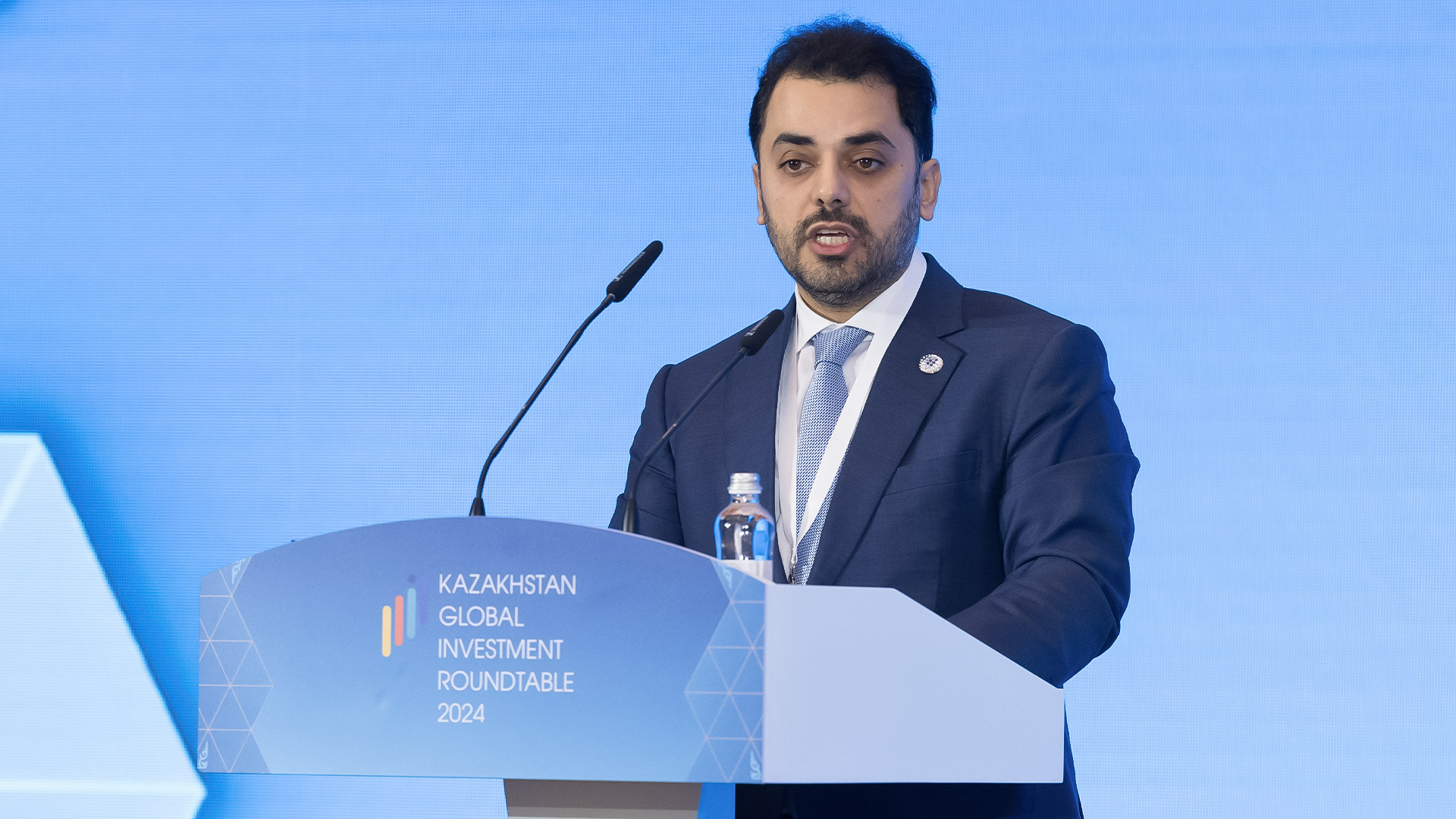
Ramez Al-Khayyat. Photo credit: primeminister.kz
Al-Khayyat noted Kazakhstan’s strategic appeal to the holding, pointing out its prime location between Europe and India, which positions it as a crucial “hub for trade and logistics” across major markets.
He also acknowledged the Kazakh government’s proactive efforts in fostering a business-friendly environment, aligning well with the company’s long-term objectives.
He sees PIH’s presence in Kazakhstan beyond resource investment. “Our focus is on creating jobs, boosting the growth of skills, and supporting key industries. For the long-term, our goal is to support Kazakhstan’s economic diversification, to reduce reliance on specific industries, and help elevate the country’s goal as a regional leader,” he said.
Marco Arcelli, ACWA Power CEO, stressed that Kazakhstan stands out as a key target for the company’s future investments and growth in renewable energy.
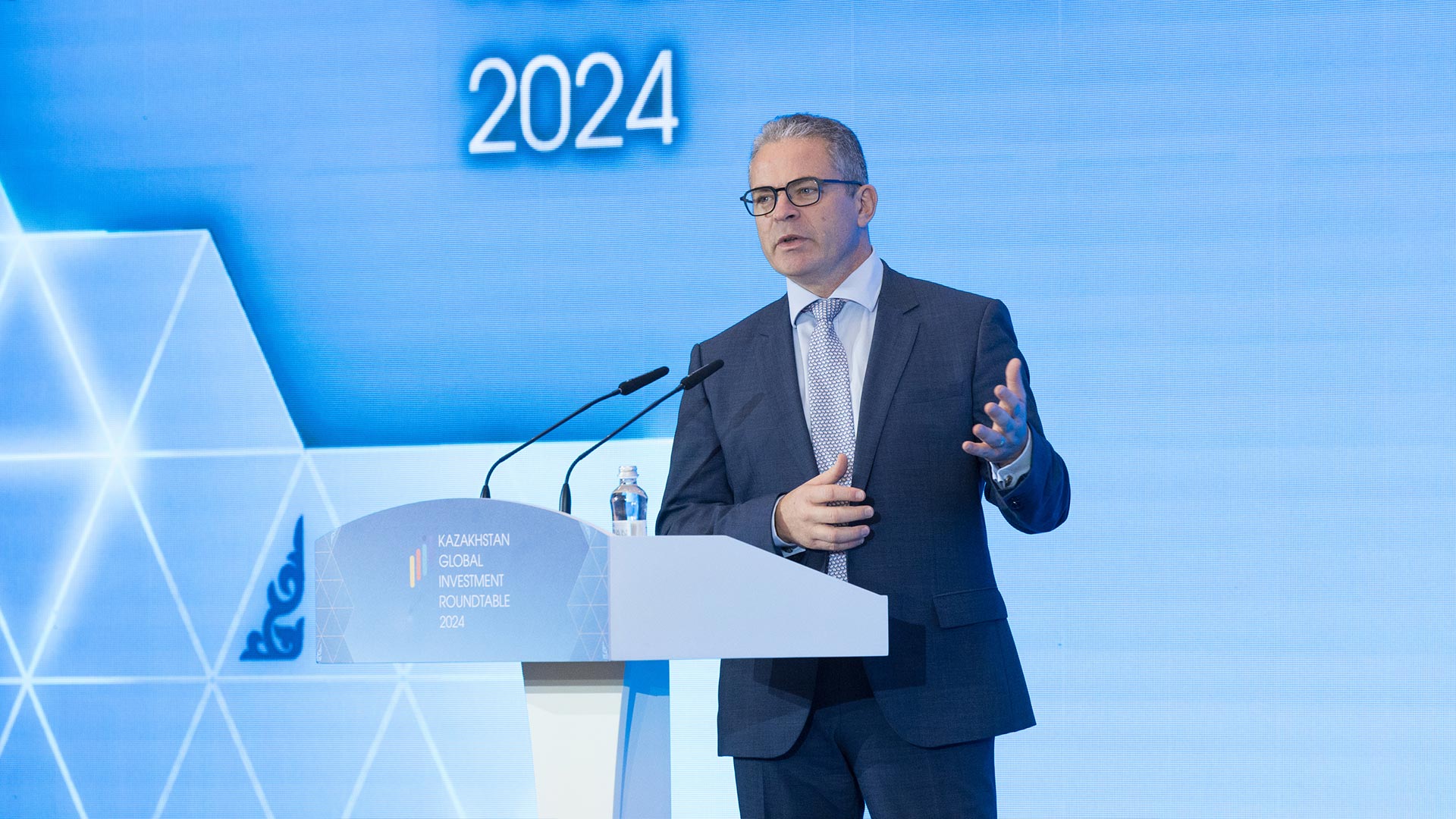
Marco Arcelli addresses the plenary session. Photo credit: primeminister.kz
In March 2023, an agreement was signed between ACWA Power, the Kazakh Ministry of Energy, and Samruk Kazyna Sovereign Wealth Fund to construct a one-gigawatt wind farm in the Zhetysu Region. Construction is set to commence in 2025.
Arcelli noted that the company dedicates around $20 billion annually across renewable sectors, including solar, wind, gas-fired generation, battery storage, desalination, and green hydrogen, with $4.5 billion already invested in green hydrogen.
The company’s initial investment in Kazakhstan, a $1.8 billion wind plant project in the Zhetysu Region, reflects the scale of its commitment. “Our experience in other countries is that when we go beyond individual projects, we can look at localization,” he said.
When asked what makes Kazakhstan an attractive investment destination, Arcelli drew to the important role of strong leadership and vision.
“When you have leaders with a vision, (…) then things happen, and this is what we are seeing today in Kazakhstan,” he said, commending the leadership in Kazakhstan for fostering an environment conducive to impactful investment.
Three global trends affecting investment dynamics
Matteo Patrone, vice president for banking at the European Bank for Reconstruction and Development (EBRD), said the bank’s investments have been growing in the region, with a projected $2 billion investment in 2024, one-third of which will be in Kazakhstan.
“All Central Asian countries have an extremely ambitious investment plan going forward, and Kazakhstan is not an exception, as we heard yesterday from President Tokayev. The ambition regards sectors like manufacturing, energy, and transport,” said Patrone.
“It is vital for institutions like the EBRD to support such ambition by enhancing absorption capacity and contributing to the improvement of the investment climate,” he said, acknowledging the positive macroeconomic fundamentals in Central Asia, including strong GDP growth projected at 5.1% in 2024 and accelerating to 5.9% in 2025.
The EBRD official highlighted three global trends that can affect investment dynamics in Kazakhstan and the broader region of Central Asia.
First is energy transition, where the path to net zero might not be smooth, according to Patrone. “Some of the trends related to energy transition are driven by globally coordinated responses to global challenges such as climate change, but others are the unfortunate result of increasing global fragmentation and geopolitical confrontation,” he said.
While renewables are a priority, there is also likely to be significant investment in nuclear energy following Kazakhstan’s recent referendum and continued reliance on gas as a transitional fuel. He pointed out the region’s potential for wind and solar energy, and its wealth in critical raw materials, which could facilitate the production of green hydrogen, steel, and fertilizers.
Patrone also discussed the diversification of transport and supply routes as the second trend, noting that Central Asia’s strategic location offers opportunities for overland connections between Europe, East Asia, and South Asia.
“Central Asia’s location in the middle of the continent is both a blessing because it offers viable overland alternatives to transit between Europe, East Asia and South Asia. It is also a curse because the region is still relatively isolated from the global economy,” said Patrone.
Challenges such as infrastructure gaps and difficult terrain persist. He mentioned a study conducted by the EBRD last year, which indicated that realizing the potential of the Trans-Caspian International Transport Route would require over $18 billion in investment.
Moving on, he touched on global trends in industrial policy, including targeted protection in strategic sectors such as renewable energy and semiconductors.
While Central Asian countries are adapting by incentivizing investments in natural resource processing and export-oriented sectors, there is concern that fragmentation in global value chains could restrict foreign direct investment.
Despite these challenges, Patrone is optimistic, and this optimism stems from Central Asia’s human capital, innovation, and ability to create value as key assets.
“Central Asia is enjoying one of the best periods in its recent history,” he said.
Localization as a priority among investors
Nitin Kapoor, vice president of biopharmaceuticals for international and border markets at AstraZeneca and chairman of AstraZeneca Vietnam, highlighted the company’s global impact, employing over 80,000 people and boasting a market capital of over $180 billion.
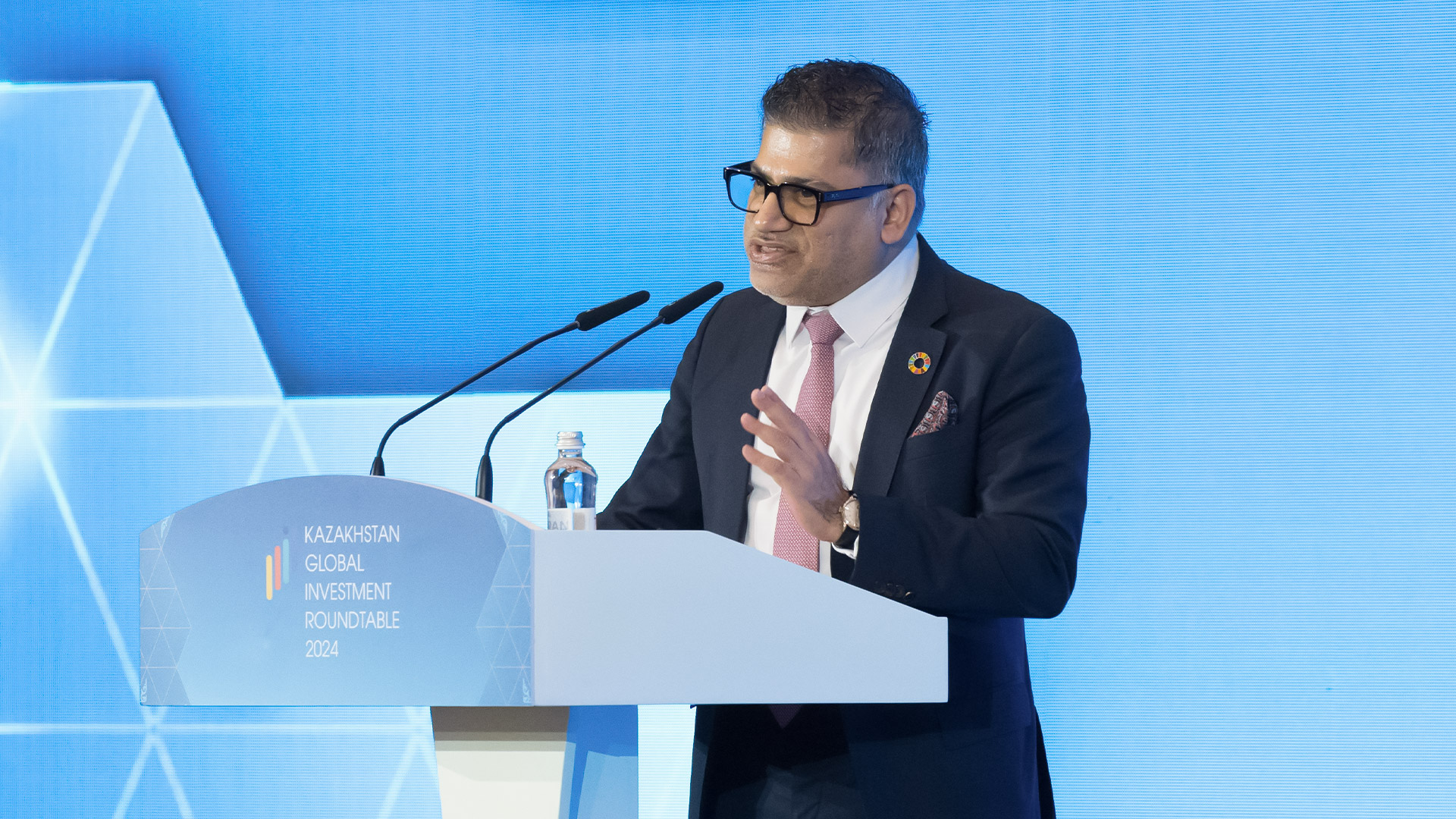
Nitin Kapoor. Photo credit: primeminister.kz
The biopharmaceutical company, known for its COVID-19 vaccine collaboration with Oxford University, has been active in Kazakhstan for 16 years. It is now in the process of localizing its production in Kazakhstan.
“We are now presenting almost every city in Kazakhstan and doing our best to help the hospitals, the academia, the societies, and the universities. We had a collaboration with a local partner to start producing some of our innovative medicines,” said Kapoor.
To drive future foreign direct investment and sustain innovation in Kazakhstan, he identified three critical factors: robust intellectual property protections, a predictable legal environment, and favorable investment incentives.
Contracts signed
Among the agreements signed is a $650 million contract between the Akmola Region, Kazakh Invest national company and China’s Dalian Hesheng to advance wheat deep processing; a $4 billion strategic cooperation agreement to produce coal chemical products between the Ministry of Industry and Construction, Kazakh Invest, and China’s CHN Energy, and an $80 million investment agreement between Kazakhstan’s Orhun Medical and the government of Kazakhstan, focused on enhancing medical services and healthcare infrastructure within the country.
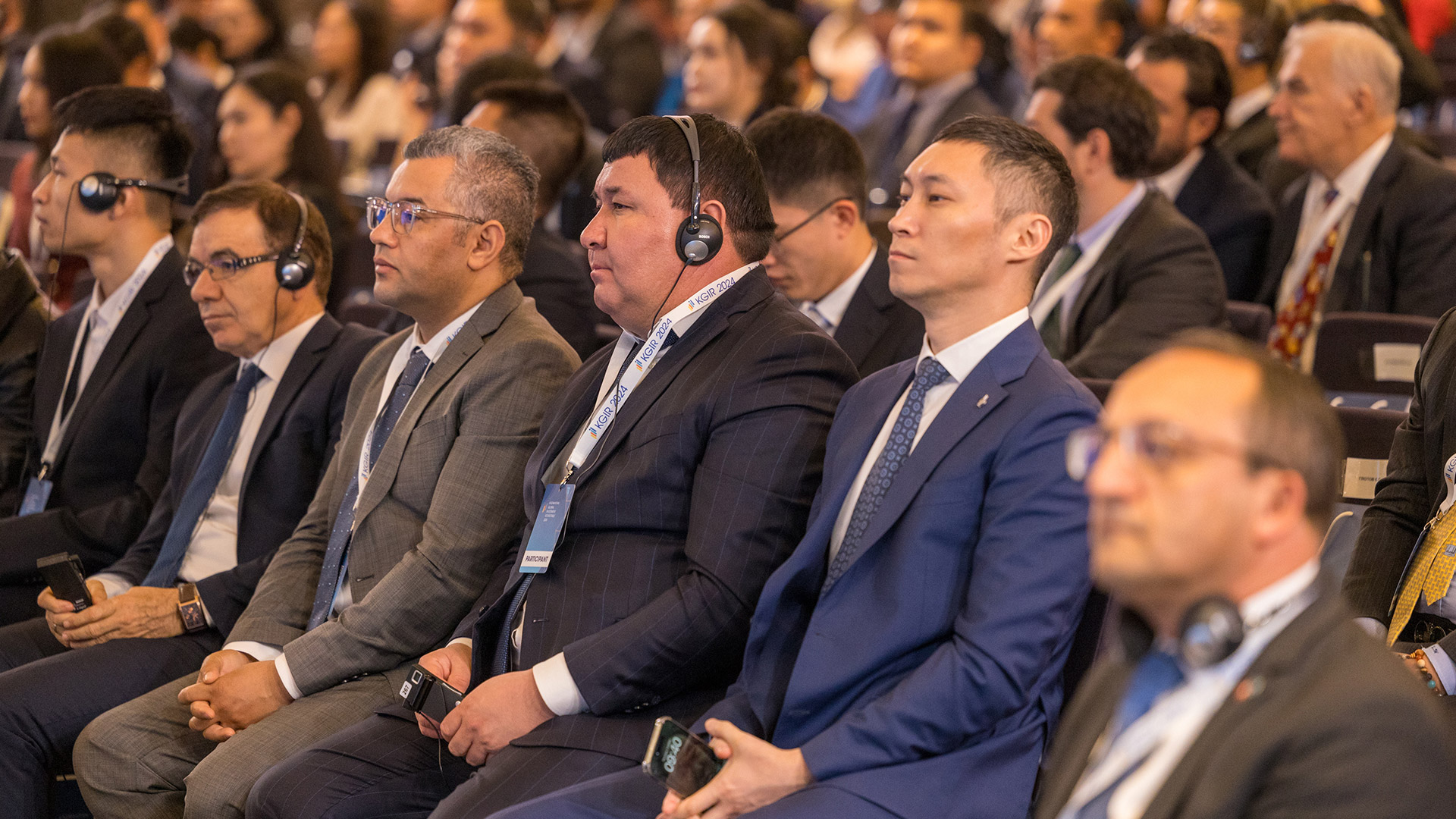
KGIR is an annual event aimed at facilitating dialogues between government representatives, executives, international financial institutions, and experts. Photo credit: primeminister.kz
Commenting on the agreement, Akmola Region Deputy Governor Yernar Zharkeshov outlined plans for a major wheat processing plant, with a first-stage investment of $650 million to produce nutrients, particularly in demand in China and Southeast Asia markets.
“Why Akmola Region? Because we are the leader among Kazakhstan’s regions in terms of agricultural products, especially wheat grain. This year, we have gathered more than 6.6 million tons of wheat, which makes us an undisputed leader in this field in Kazakhstan. On the other hand, we are also very client-oriented,” Zharkeshov told The Astana Times.
He also stressed the region’s proactive investment approach, particularly through the establishment of Aqmola Invest, a one-stop shop for investors with a front office in Astana.
“We don’t sit and wait for investors. We run for investors here in Astana. Since the launch of the Aqmola Invest front office in Astana [in July], we signed agreements worth $1.6 billion US. (…) We are looking forward to this plant on wheat grain processing, which will create more than 1,000 new jobs in the Akmola Region,” he said.
Zharkeshov emphasized that the wheat processing plant project aligns with President Kassym-Jomart Tokayev’s directive to prioritize deeper processing of Kazakhstan’s agricultural products. “We are very attentive to these initiatives,” he added.
Kazakhstan’s Silk Way Energy and the Kazakh government also signed an agreement worth $305 million to build a liquefied natural gas (LNG) plant in the Zhetysu Region, with a daily production capacity of up to one million cubic meters.
A $10.4 million project was signed between Kazakhstan Temir Zholy national railway company and Transportation Global, focusing on digitalization and AI integration within Kazakhstan’s railway manufacturing sector.
